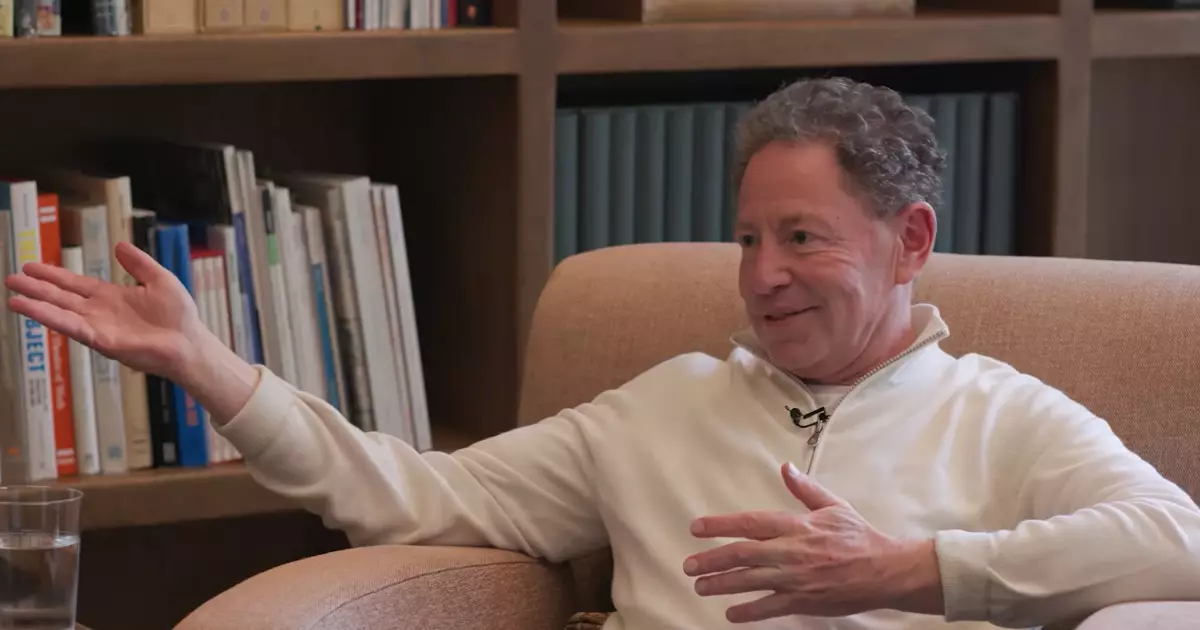The gaming industry was recently stirred by comments made by former Activision Blizzard CEO Bobby Kotick during an appearance on the Grit podcast. Focusing on allegations against Activision Blizzard, Kotick dismissed many of the contentious lawsuits as “fake,” a remark that was met with immediate backlash from labor representatives and employees alike. In an era where workplace misconduct and allegations of discrimination are under intense scrutiny, Kotick’s remarks contribute to an ongoing debate regarding corporate accountability and the rights of workers. The Communication Workers of America (CWA), among other organizations, quickly condemned his statements as misleading and disrespectful to those who have endured real issues of harassment and discrimination.
Kotick’s dismissal of the lawsuits as “insulting” echoes a longstanding sentiment among employees and labor unions that have fought for better working conditions and recognition of their struggles. According to a spokesperson for the CWA, his insinuation that these legal actions were fabricated is fundamentally false. The CWA highlighted the substantial $18 million settlement reached in 2021 with the Equal Employment Opportunity Commission (EEOC), addressing claims of sexual harassment and workplace discrimination. This interaction starkly contrasts Kotick’s narrative that minimizes the hardships faced by employees.
Moreover, the CWA documented that Kotick himself had previously acknowledged inappropriate conduct occurring under his leadership, making his current statements appear particularly hypocritical. They viewed his comments not just as a personal stance but as reflective of broader corporate attitudes that resist acknowledging systemic issues within their organizations.
The spectrum of legal settlements at Activision Blizzard adds complexity to this narrative. Following the initial settlement, a second agreement in 2023 with the California Civil Rights Department underscored the company’s ongoing struggles in addressing workplace equality, amounting to a staggering $54 million. This settlement was specifically for discriminatory practices against women and pay inequities, painting a troubling picture of the workplace environment at the gaming giant.
The CWA has been vocal about these settlements, pointing out that they are not mere financial compensations but rather acknowledgments of wrongdoing. These agreements compel companies to take actionable steps—such as implementing anti-harassment training and improving mental health support for employees. Such measures are crucial for preventing future incidents and ensuring a healthier workplace culture.
In an unexpected turn, the ABK Worker’s Alliance, a union comprising Activision Blizzard King employees, voiced their dissent against Kotick’s claims via social media. They firmly stated that the “trauma, discrimination, and abuse” suffered by employees are anything but fabricated. By stating that their unions were “born from the very real and harmful way executives reacted” to complaints, they emphasized that their efforts stem from genuine experiences rather than opportunistic tactics to enhance union membership.
This grassroots approach underscores a fundamental truth in labor relations: employees want to reclaim their narrative. They reject Kotick’s notion that union organization is a ploy devised by external entities. Instead, they insist that they themselves are the union, fighting for a better and safer work environment based on shared values.
The exchange between former executives and labor unions underscores a critical need for reform in industry standards. The light of scrutiny has shined on many firms, especially in the gaming sector, where tales of workplace misconduct continue to surface. The comments made by Kotick raise questions about the perception of accountability and corporate responsibility. It also highlights the often antagonistic relationship between leadership and employees, especially during times of upheaval like unionization efforts.
The workers’ movement reflects a significant power shift within the industry, compelling companies to listen more attentively to the voices of their employees. The changing landscape posits unions not as adversaries but as essential advocates for fair and respectful workplaces.
Bobby Kotick’s remarks and their consequent fallout signal an imperative need for genuine discussion and action regarding workplace standards in the gaming industry. Organizations must navigate the complex interplay between leadership and worker rights with integrity and a commitment to fostering safe environments. Ultimately, the recollection of painful experiences by employees must not be disregarded but rather serve as a harbinger for meaningful change within corporate philosophies. As workers continue to unite and advocate for their rights, it is evident that the momentum for improved workplace conditions is gaining strength—a trend that demands acknowledgment and respectful dialogue from industry leaders.


Leave a Reply